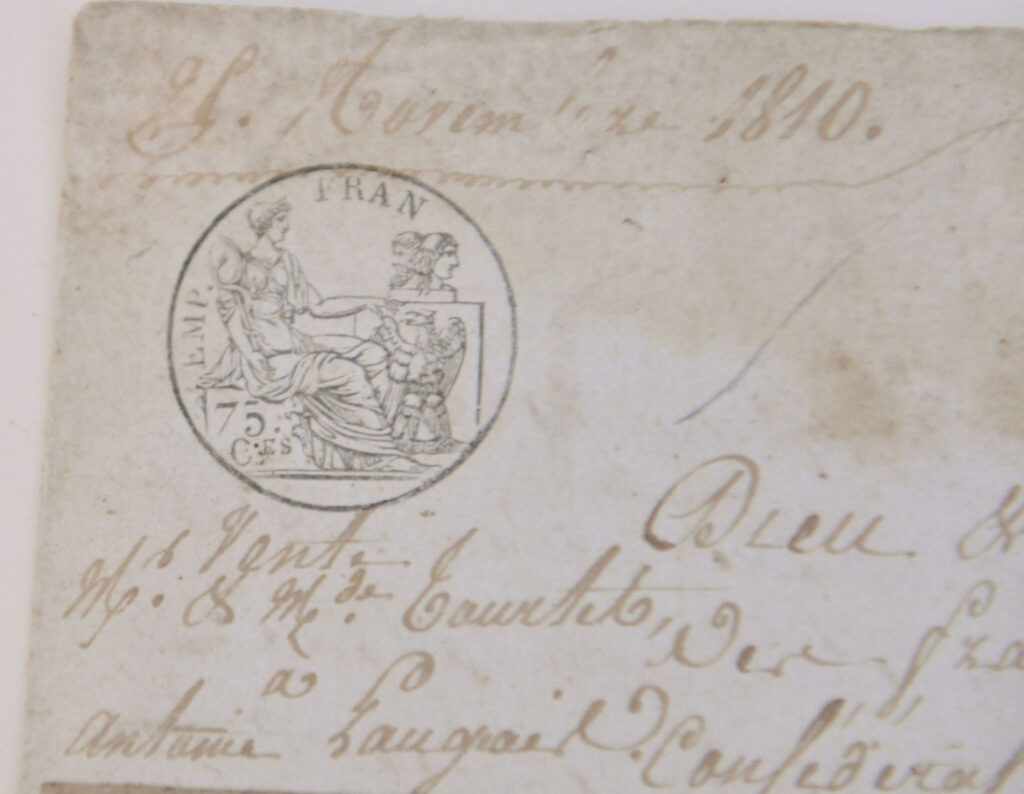KINGWOOD — Many people dream about what they would do if they found something that connects their family to a historical figure.
Jean Guillot, who owns The Preston County Inn in Kingwood, has done just that.
He found a 210-year-old, four-page document. The document was dated 1810 and stamped with the Napoleonic seal.
Guillot said he found the document in a box of papers in his late mother’s garage.
He said the document is written in middle French and he doesn’t have a full translation.
Middle French was a period of the French language used from about the 14th to the 17th century.
With Guillot’s permission, The Dominion Post contacted Katherine Aaslestad, of the West Virginia University Department of History, and sent information and photos of the document to her.
Aaslestad shared the information with Alexander Mikaberidze, a professor at the Department of History and Social Sciences at Louisiana State University in Shreveport.
Mikaberidze was able to translate part of the document.
“The quality of the photos is poor but I was able to read parts of the letter,” Mikaberidze wrote in an email.
“This is not a letter by Napoleon, but rather a notarized document. The heading is the standard legalese identifying Napoleon as the ruler of the realm while the second paragraph identifies Jean Hyacinte Guiot as a notary in Nazelles, France (I found him also listed in Recueil des actes administratifs, published in 1812); the seal is the stamp showing that the fee was paid. The rest of the document is discussion of terms, etc.”
Guillot knows some family history.
“Prior to World War II, the Guillot-Plou family was wealthy. They had the largest landed estate in the Loire Valley,” Guillot said.
He said the Loire Valley was occupied by the Nazis during World War II, and his grandmother’s family estate became the regional headquarters for the Nazis.
“My grandmother’s father salvaged what he could and they were forced to move. Their new house was basically a converted barn in Artigny,” Guillot said. “They lost everything save some gold coins they used to trade on the black market to survive.”
He said when the Allied bombing started, their targets were strategic points. As a result, his grandmother’s estate was leveled.
“My mom was raised in the Nazi-occupied zone till she was 6 years old,” Guillot said. “Grandma did a lot of things for their survival that would have gotten her sent off to a concentration camp. So my mom was raised to not tell anyone anything because you didn’t know if that person was a Nazi ‘pigeon.’”
He said when France fell his grandfather was taken and served in a Nazi prisoner of war camp. When Germany surrendered, Stalin didn’t release POWs but took them back to Russia to Soviet work farms. Guillot said his grandfather served two years on one of those farms before he was allowed to go home.
“After the war, my grandparents were too poor to raise my mom and her three sisters. They sent them to a Catholic convent, where they were raised until they were 18,” Guillot said.
He said his mother eventually married an American serviceman living in Paris and probably brought the document with her when she moved to the United States.
TWEET@DominionPost.WV





